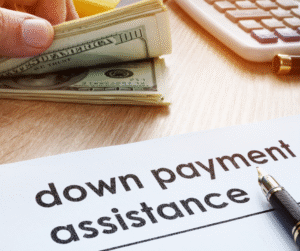Debt consolidation loans: when they help and when they hurt
Learn how debt consolidation loans work, when they can reduce financial stress and when they might backfire. Get the facts before you decide.
When you’re buried under credit card balances, medical bills, or other personal loans, debt consolidation loans might sound like the perfect solution.

Replacing a mess of payments with just one feels like a step in the right direction. But like most financial tools, the value of a debt consolidation loan depends entirely on how, when, and why you use it.
Let’s take a deeper look at what these loans offer and where they can lead you off track.
When debt consolidation loans can actually help
The most immediate benefit is convenience. Managing one payment instead of many makes life simpler and reduces your chances of missing due dates.
Debt consolidation loans also offer the possibility of a lower interest rate, particularly if your credit has improved or if your current debts carry high rates. With a better rate, more of your payment goes toward the principal balance rather than just interest.
Another advantage is predictability. Most of these loans have fixed terms and rates, meaning your payment amount won’t fluctuate. You know exactly what you’ll owe each month and for how long.
And finally, instead of feeling like you’re constantly treading water, you can see one clear path to becoming debt-free.
But be careful, there are downsides too
Unfortunately, debt consolidation loans can also lead to more problems if they’re not approached thoughtfully.
One key risk is extending the length of repayment. To reduce the monthly payment, lenders may stretch the loan over several years. This might feel like relief at first, but over time, you could end up paying more in interest, even if the rate is technically lower.
There’s also the issue of slipping back into debt. Once the balances on your credit cards are cleared, it can be tempting to start using them again. Without a plan or change in habits, you risk doubling your debt instead of solving it.
Additionally, not all loans are a good deal. Some come with fees like loan origination costs, prepayment penalties, or optional insurance that drives up the overall cost. Always read the fine print before signing anything.
And while many people hope consolidation will be an easy way out, not everyone qualifies for favorable terms. If your credit score is low or your debt-to-income ratio is too high, you might only be offered high-interest loans that don’t offer much improvement or make things worse.
Is this part of a plan?
Before considering debt consolidation, take a moment to reflect on your situation. Are you trying to make things easier because you have a strategy in place to pay off your debts? Or are you simply overwhelmed and looking for quick relief?
Debt consolidation is a tool, not a solution. It doesn’t erase what you owe or fix the financial habits that got you there in the first place. If you’re not sure whether it’s the right path, speaking with a certified credit counselor or financial advisor can provide objective guidance.
Simplicity isn’t always a solution
Debt consolidation loans can bring order to financial chaos. Used responsibly, they can help you stay organized, reduce stress, and pay down your balances on a clear schedule.
At the end of the day, the goal isn’t just to simplify your payments. It’s to change the pattern, and that starts with honest reflection, not just a new loan.






